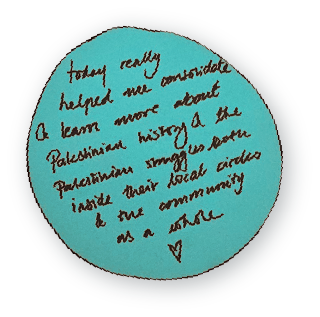Geneva Conventions

The Geneva Conventions are a set of treaties that regulate how people should be treated in times of war. These Conventions are at the core of international humanitarian law (the law that regulates times of war and conflict) due to their objective of limiting the effects of war.1 Two treaties were established in 1929, and two more in 1949.
As one of the most significant international law instruments for situations of war, including military occupation, the Fourth Geneva Convention in particular has had a central role in international advocacy for Palestinian rights for decades. Most fundamentally, the Fourth Geneva Convention has been deemed applicable to the case of the Palestinians and the Occupied Palestinian Territory (OPT), setting out responsibilities for Israel as the occupying power. This is important since Israel has repeatedly claimed that the convention does not apply to Palestinian territory.
The Geneva Conventions specifically protect both those who are not participating in wars (such as civilians, aid workers, and health workers), as well as those who are no longer participating in wars (such as wounded or sick soldiers, prisoners of war, and shipwrecked soldiers). While the first three Conventions are each applicable to different areas of humanitarian protection during war, such as war on land, war at sea, or regarding prisoners of war, the Fourth Geneva Convention focuses on protecting civilians, including those who live in occupied territory. In doing so, the objective of the Fourth Geneva Convention is to achieve humanitarian treatment for civilians living under occupation or in times of war.2
This Convention also explains the responsibilities of occupying powers (such as Israel) to occupied populations, such as the prohibition of collective punishment and protecting the right to leave the territory.3 According to UN General Assembly Resolution 72/85, the Fourth Geneva Convention is applicable to the OPT, including East Jerusalem, contrary to Israeli government claims. This resolution also calls for Israel to recognise its applicability and act accordingly.4 Furthermore, both the West Bank wall and Israeli settlements in the West Bank have been declared as violations of the Fourth Geneva Convention.5 In the case of settlements, this is because Israel as an occupying power cannot deport or transfer parts of its own civilian population into the territory it occupies; and in the case of the wall, this is because it restricts Palestinian movement throughout the West Bank, cuts off land and access to resources needed for Palestinian development, and undermines agricultural and rural livelihoods throughout the territory.
References
Convention (IV) relative to the Protection of Civilian Persons in Time of War, or the Fourth Geneva Convention details the necessary treatment of civilians during times of armed conflict as well as the responsibilities towards and rights of civilians of occupied territories.
What is International Humanitarian Law? published by The International Committee of the Red Cross, provides general information related to international humanitarian law such as when it applies, how it is implemented, and its jurisdiction.
https://www.icrc.org/en/doc/assets/files/other/what_is_ihl.pdf
All four Geneva Conventions focus on improving the conditions of people during times of war and occupation.
https://www.icrc.org/en/doc/assets/files/publications/icrc-002-0173.pdf
Footnotes:
- https://www.icrc.org/en/document/geneva-conventions-1949-additional-protocols
- https://www.icrc.org/en/document/geneva-conventions-1949-additional-protocols
- https://ihl-databases.icrc.org/applic/ihl/ihl.nsf/Treaty.xsp?documentId=AE2D398352C5B028C12563CD002D6B5C&action=openDocument
- https://www.un.org/unispal/document/applicability-of-the-geneva-convention-relative-to-the-protection-of-civilian-persons-in-time-of-war-of-12-august-1949-to-the-occupied-palestinian-territory-including-east-jerusalem-and-the-other/
- https://www.un.org/press/en/2016/sc12657.doc.htm; https://www.theguardian.com/world/2004/jul/10/israel3; http://opil.ouplaw.com/view/10.1093/law:epil/9780199231690/law-9780199231690-e150
Palestine 101
Learn the basics

